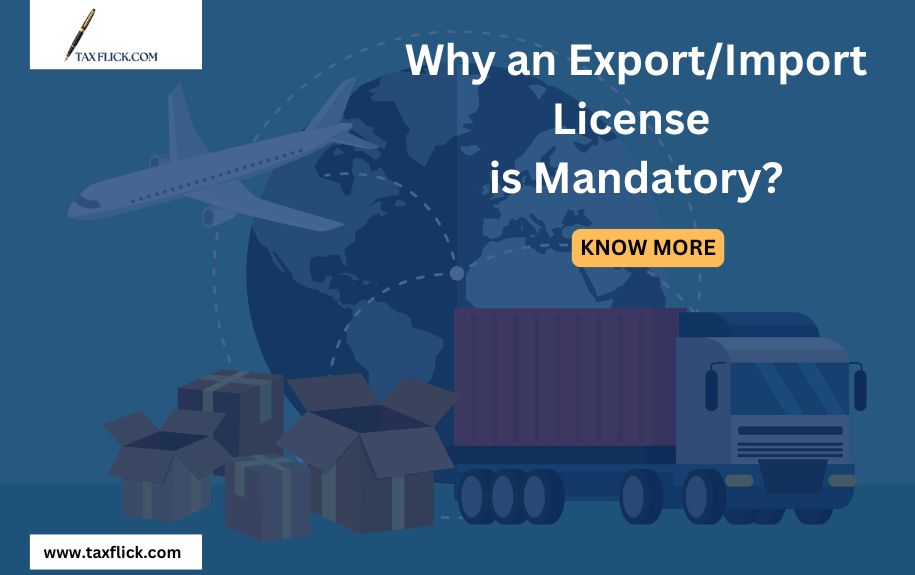Why an Import/Export License is Mandatory?
In the contemporary globalized era, international trade forms an integral part of economic growth. Most businesses at various levels are now sourcing products from other world suppliers and exporting goods to foreign markets. However, before initiating cross-border trade, most countries require an ‘import/export license’. This article helps to explain why this license is important and what it achieves for the business.
What is an Import/Export License?
It is a kind of license provided by the government, officially given to a company to export and import goods between nations. For example, in India, DGFT issues an IEC code. It is must for all parties who want to import or export. It means that anyone wishing to export and import has to obtain the same from the directorate general of foreign trade under the government.
Why an Import/Export License is necessary?
1. Legal Compliance.
Carrying out international trade without the right license is unlawful and attracts grave penalties, such as the seizure of products, and sometimes bans against future trading activities. A license ensures that your business complies with domestic and international trade regulations. This safeguards it from any litigation and losses caused by it in the form of money.
2. Clearance at Customs
A valid import/export license is necessary to clear goods at customs. Without it, shipments can be delayed, rejected, or subjected to hefty fines. The license serves as proof that your business is authorized to conduct cross-border trade and ensures smooth customs processing.
3. Government Regulation and Security
Governments use import/export permits to keep an eye on and control the movement of products into and out of the nation. This preserves national security, controls the flow of restricted or forbidden goods, and stops illicit trade.
4. Availability of Trade Benefits and Incentives
In order to promote exports, several nations provide trade incentives like tax breaks, duty deductions, and subsidies. These advantages, which lower expenses and boost profitability, are available to companies who possess an import/export license.
5. Improving Business Credibility
An import/export license builds the credibility of your business. It shows the international clients and partners that the operations are legitimate and in compliance with legal and trade standards. This will ensure that the international business relationship will be smoother.
6. Market Expansion
Having an import/export license is a requirement before entering international markets. It offers opportunities to extend your business footprints globally, hence reaching more customers.
Who Requires Import/Export License?
Manufacturers, traders, e-commerce websites, or anyone trading internationally, either by producing themselves or purchasing for re-sale or re-shipment needs an import/export license. Service providers even, like software and others technical imports/exports may require the same documentation.
Acquiring Export/Import License
The acquisition of an Import/Export License often varies with a country, though generally it usually involves application by a person who seeks to do importation/exportation business from the concerned state authority, where upon one submits supporting documents. For example, evidence of identity and business registration; and other pertinent papers that will be determined and provided by the licensing authority are normally required. When all these necessary documents are satisfactorily attested, this is followed by giving a license in return.
Conclusion
An import/export license is a legal formality as well as important requirement of any business engaging in international trade. This will automatically improve the reputation of your company, protect compliance, facilitate the customs clearance process, and allow you to obtain government incentives.
In addition to shielding your company from legal issues, acquiring the required license positions it for long-term success in the international marketplace. Obtaining an import/export license ought to be the first and most crucial step if you intend to expand your company internationally.
It is a kind of license provided by the government, officially given to a company to export and import goods between nations. For example, in India, DGFT issues an IEC code. It is must for all parties who want to import or export. It means that anyone wishing to export and import has to obtain the same from the directorate general of foreign trade under the government.
The acquisition of an Import/Export License often varies with a country, you can acquire one by submitting an application with the required documents to the relevant government authority.
Specific documents may vary from country to country but the following are commonly required. Here’s the list:
1- PAN Card (Personal or Business)
2- Business Registration Certificate
3- Address Proof (Utility Bills, Rental Agreement, etc.)
4- GST Registration (if applicable)
5- Bank Details (Cancelled Cheque, Bank Certificate)
6- Digital Signature Certificate (DSC) (if required)
7- Recent Passport-Sized Photographs
8- Authority Letter or Power of Attorney (if applicable)
9- Trade-Specific Approvals (if needed).






